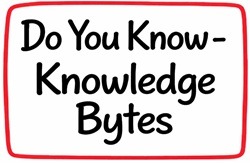I love reading blog posts written by Dr SP Kalantri – Prof of Medicine in MGIMS, Sevagram. One very fascinating post was about a young girl who was brought in late night to the hospital – as he describes – “motionless and speechless”
His post describes how the residents tried everything they could and then it was a lecturer who used her intuitive skills to think about a possible snake bite (krait) and to treat the patient successfully!
Dr Kalantri concludes his post by saying – “We cannot rely solely on Western textbooks to effectively care for acutely ill people arriving from our villages”. Absolutely right!
As a former medical librarian (and still one at heart!), I have two thoughts on this.
One – we need to definitely have lots of case reports especially from our villages. As far as I know, most journals accept case reports only if they are extremely unique. If there is one case report on a krait bite, more may not be accepted. So the chances of doctors / students reading more about krait bites gets highly reduced. Still – we do need to check how lots more can be written about such cases.
Second thought – Residents who are treating such cases may or may not search the literature while they are carrying out treatment. It is understandable that their full focus would be on the patient. However this is the time when “Clinical Decision Support Systems” would be vital. They feed in all symptoms and vitals and get possible diagnoses to check out.
I am reasonably sure that very few centres in India have CDSS available. Yes – they are expensive, but surely need exploring. More importantly, we need to feed in such Indian cases into these systems. (Most CDSS allow integration of medical records of a hospital)
In addition – doctors – from their student days need to be taught about which resources they should consult, for what information need. And how to apply search techniques right. Textbooks are for basic learning. Journal articles – to stay updated. Tools and CDSS for “possible answers”
We at QMed have covered these basics in our free course – Information Resources & Literature Searching in www.qmedcourses.in . (We have not mentioned CDSS in this ELearning course)
We also teach literature searching in great detail in the same ELearning site. And in a future blog post – we will share how a doctor saved a patient’s limb, by using the skills he learnt from us!


